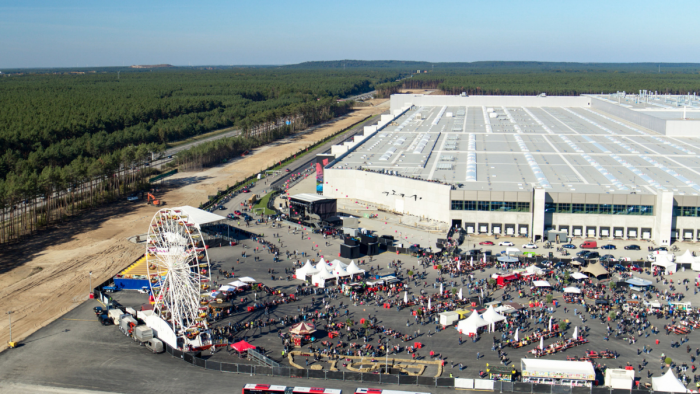Tesla is trying to increase factory output in order to prevent deliveries from taking too long; its goal is basically to reach 6,000 weekly units throughout this first quarter 2023. Thus, between January and March Tesla hopes that approximately 75,000 units of the Model Y will come out of its production lines, which would be equivalent to some 300,000 units a year.
In order to achieve that goal, Giga Berlin is having to increase production capacity and speed up supply chain processes. This is a challenge considering the current demand explosion, but Tesla has already hired additional workers and is constantly reworking production tasks and processes in an effort to increase efficiency. In addition, they are testing new technologies in their factories, such as robots and artificial intelligence, trying to make production more efficient.

During the first phase Giga Berlin will have a maximum annual output capacity of 500,000 cars, but it is expected to reach 1 million later on, very quickly. This figure will apparently be reached when the Model 3 also begins to be assembled in Germany; in addition, the Berlin plant will also produce a new compact electric car ( the “Model C” or “Model 2”) in the medium term.
The Brandenburg Minister of Economy, Joerg Steinbach, indicated in public interviews that Tesla will have to increase production “a little more” in order to be able to cope with the growing demand. The company is in fact currently recruiting more staff to work at Giga Berlin, whose workforce currently consists of 9,000 employees, as per the latest numbers available.
In spite of this recruitment efforts, the manufacturer is actually having problems finding new workers, due to the high workload and frequent overtime shifts - especially on weekends -, a situation that was recently denounced by IG Metall, the largest worker union in the automotive sector in Germany.
Irene Schulz, IG Metall's district manager for Berlin, Brandenburg and Saxony, pointed out a few days ago that the Giga Berlin workforce also complains that the halls are allegedly poorly insulated, so it is very hot in summer and very cold in winter, and that there are few spaces for the workers to rest.

"According to our observation, there is also a lack of a management culture that promotes an open discussion in the company about such employee concerns", she stated. So far, Tesla has failed to meet its hiring targets despite the wage hike, with many candidates preferring to stay with the competition due to better contract terms: salary, compensation, holidays, etc. This situation must be tackled if Tesla wants to achieve sustained growth in Europe, a market in which it is clearly achieving enviable commercial performance.
All this shows why Tesla is investing so much in Giga Berlin and the European market, in order to be able to meet demand. This is not an easy task, as the company is working hard to optimize existing factories and looking for new ways to make production faster and more effective. However, Tesla's goal is clear, and with the help of Giga Berlin, they will soon be able to satisfy the growing demand for their cars in Europe.
Source: automotivenewseurope
All images courtesy of Tesla Inc.
Nico Caballero is the VP of Finance of Cogency Power, specializing in solar energy. He also holds a Diploma in Electric Cars from Delft University of Technology in the Netherlands, and enjoys doing research about Tesla and EV batteries. He can be reached at @NicoTorqueNews on Twitter. Nico covers Tesla and electric vehicle latest happenings at Torque News.
Set Torque News as Preferred Source on Google











